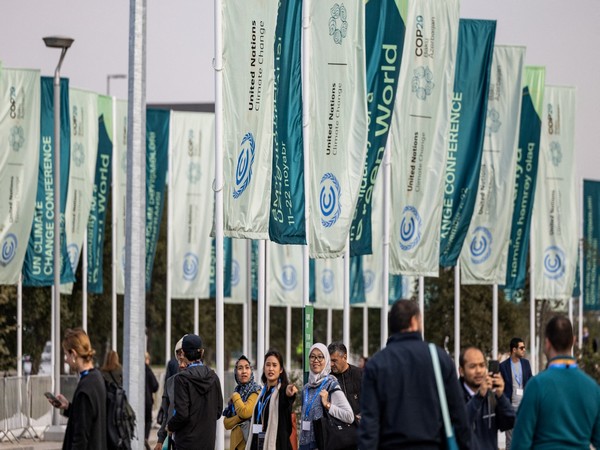Baku Hosts Pivotal COP29 to Tackle Climate Crisis with Renewed Financial Ambitions
Leaders from around the globe converge in Baku for COP29, aiming to drive ambitious climate action and financial commitments. The two-week event focuses on securing new finance goals to mitigate climate impacts, emphasizing the need for drastic emission reductions and resilient global strategies.

- Country:
- Azerbaijan
The 29th Conference of the Parties (COP29) to the UN Framework Convention on Climate Change is set to commence in Baku, Azerbaijan, with global leaders, including those from India, gathering for critical discussions and negotiations. Scheduled from November 6 to 22, attendees aim to tackle the pressing climate challenges with a focus on ambitious goals.
The United Nations warned that without significant emission reductions and resilient supply chains, economies worldwide, including those of the G20, won't withstand the impacts of unchecked global warming. COP29 is seen as a platform to mobilize leaders from government, business, and civil society to advance defined solutions to these global issues.
A primary focus at the summit will be finance, with trillions needed to reduce emissions and safeguard lives from climate change. Since its inception in Berlin nearly three decades ago, COP gatherings persist in their mission to curb global warming to under 1.5 degrees Celsius, a target essential to preventing severe planetary harm.
This year's discussions spotlight the transition to a 'New Collective Quantified Goal' (NCQG) in climate finance, replacing the past $100 billion annual commitment from developed to developing nations, set in 2009. The shift towards the NCQG highlights a pressing need to meet the $1 trillion annual finance requirement highlighted in a 2022 report by the Independent High-level Expert Group.
COP29's agenda is poised to underline fresh financial pledges, aiming to aid vulnerable nations and uphold the 1.5-degree Celsius goal. The event aligns with the 'COP Presidencies Troika' efforts, supported by the UAE, Brazil, and Indonesia, aiming to accelerate climate action towards the long-term target.
The UNFCCC, a multilateral treaty established in 1992, aims to stabilize greenhouse gases, bringing nations together to prevent hazardous climate impacts. Notable past achievements include the Kyoto Protocol and the Paris Agreement, solidifying the framework for ongoing discussions and measures.
Representing India, Union Minister Kirti Vardhan Singh, alongside a state-level delegation, attends the summit to advocate for climate action. The UNEP Emissions Gap Report 2024 stresses the urgency for 5.5 to 9 percent annual emission cuts to maintain temperature goals, complementing COP29's broader themes, including finance and energy transition.
(With inputs from agencies.)
ALSO READ
Boeing Seeks Emissions Waiver for 777F Freighter Sales
ADB, Mongolia Launch Grassland Carbon Pilot to Restore Rangelands, Cut Emissions
Boeing Seeks Emissions Waiver Amid Demand Surge
Why Cutting Emissions Is One of the Strongest Public Health Tools in Europe Today
Czech Republic Challenges EU's Emissions Plan Amid Global Competition










